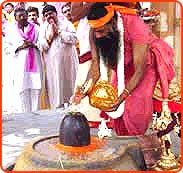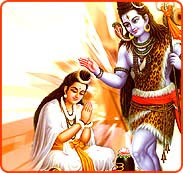Mahashivaratri Festival
The Hunter
Once
upon a time, a hunter worshiped Lord Shiva unknowingly on Shivaratri.
He did this by dropping bael leaves on a shiva linga at the base of a
bael tree from its branches where he was hiding and fasting all night.
For this he was forgiven of all his sins. This forms the basis behind
the offerings of bael to the Lord on Shivaratri.



No comments:
Post a Comment